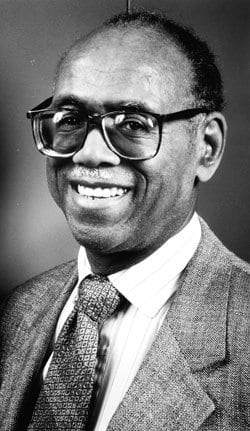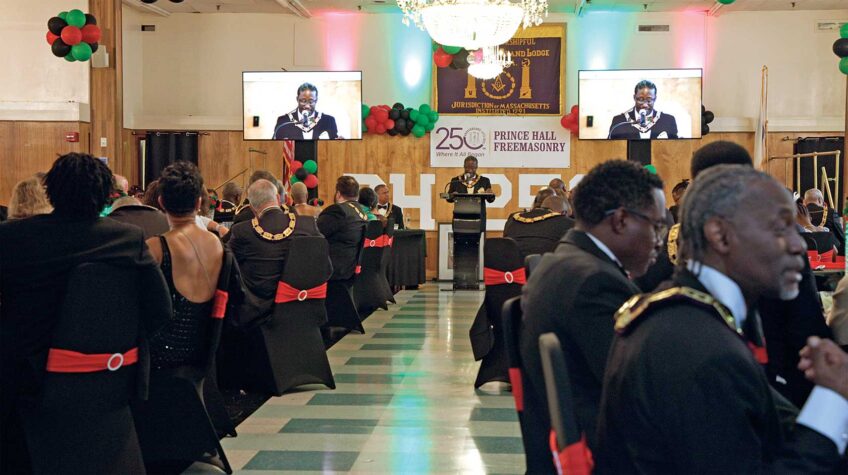
Luix V. Overbea
Luix V. Overbea, one of the founding members of the National Association of Black Journalists (NABJ) and a longtime veteran reporter for the Boston-based Christian Science Monitor, died last Saturday due to kidney failure. He was 87 years old.
Overbea’s accomplished newspaper and television career spanned more than 40 years and included stints with the Bay State Banner and the Associated Negro Press, a black-owned wire service that distributed stories to newspapers across the country. Overbea received NABJ’s Lifetime Achievement Award in 1993.
Although his career was primarily spent working in mainstream media, usually as the first and only black in the newsroom, he challenged NABJ to never forget the black press, according to a statement from the NABJ.
“He was an exceptional trailblazer, whose tenacity and talent made NABJ and the world better,” said NABJ President Kathy Y. Times. “He truly paved the way for many black journalists to follow in his footsteps.”
Overbea’s 1964 interview with Jesse Jackson, appearing in the Winston-Salem (N.C.) Journal, was one of the first interviews for the young Jackson, then leading lunch counter sit-ins at North Carolina AandT University.
Overbea’s 12-year tenure as one of the only black reporters on the Winston-Salem (N.C.) Journal began in 1956, when he started by writing the southern newspaper’s “Negro page.”
“Whether he was writing for the black press or the majority press, his readers got the work of one of the best journalists in the history of the profession,” said friend and founding NABJ Executive Director Paul Brock. “He was always true to his profession, his culture and his community.”
Describing that newsroom’s attitudes toward blacks at that time, Overbea often remarked, “If I had bothered to turn my head every time somebody in that newsroom said the word ‘n—-r,’ I would have broken my neck.”
The Chicago native received a bachelor of philosophy in journalism degree from Northwestern University. “I was probably the last person to get that degree,” he laughed in an interview. “They changed the name after I left.”
Northwestern was not the only place where Overbea broke the mold. In the mid-1960s, he was editor of the black-owned St. Louis Sentinel and then moved to the daily Globe-Democrat. But most would know him as the lone black face and pioneer on the Christian Science Monitor, which he joined in 1970.
After 20 years on the Monitor newspaper staff, Overbea moved to Monitor Television as executive producer of “Inner City Beat” and in 1990 was named vice president for community affairs.
John Yemma, The Monitor’s editor and a former colleague of Overbea’s, said that he was a “mentor and role model to many on the staff.”
“Luix Overbea was a pioneering journalist,” Yemma said. “During inner-city Boston’s tumultuous reaction to court-ordered desegregation reaction in the 1970s, he was a careful analyst of the complex forces at work and a clear-eyed chronicler of history as it transpired.”
Also an artist and poet, “Hometown,” art by Overbea, is on display at the Roxbury Crossing Boston “T” Orange Line train stop.
“Luix was a solid journalist who understood the basics of good journalism better than most,” said longtime friend and NABJ Founder Acel Moore. “I would venture to say that when he broke into the field, there were less than 50 of us writing for dailies.”
Overbea is survived by his daughter, Adgirene Overbea in Boston. The funeral service is Friday, July 16 at 11 a.m. at Davis Funeral Home, 654 Cummins Highway, Mattapan.






